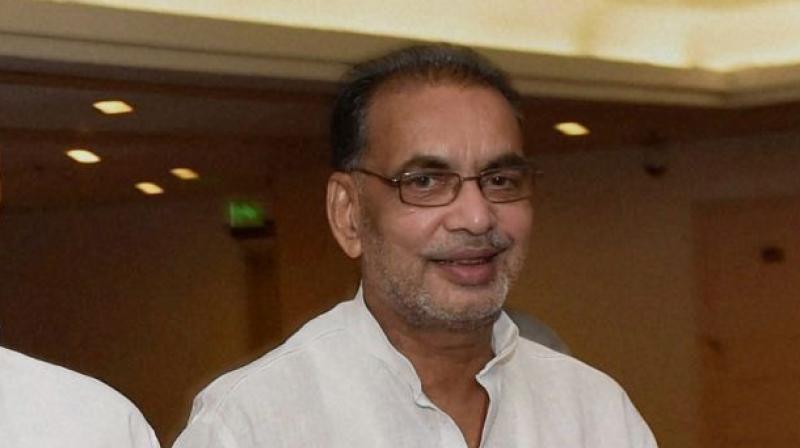India will become self sufficient in pulses, oilseeds: Agriculture Minister

New Delhi: Agriculture Minister Radha Mohan Singh today exuded confidence that India will become self- sufficient in pulses and oilseeds production in the coming years with the government taking steps to boost yields through use of better quality seeds and technologies.
The country imports over 5 million tonnes of pulses and about 14.5 million tonnes of vegetable oils (comprising edible and non-edible oils) every year to meet domestic demand.
Addressing the 89th foundation day of the Indian Council of Agricultural Research (ICAR), Singh said the government is not only focusing on increasing production but taking steps to make agriculture "income-centric" as part of its target to double farmers' income by 2022.
The minister asked ICAR scientists to work in a mission mode to achieve this target as well as the overall development of agriculture and allied sectors, which contribute 18 per cent to GDP. He emphasised on skill development in agri sector to boost crop yield and farm income.
Singh said the green revolution helped India in becoming self-sufficient in wheat and rice, but the country is still importing pulses and oilseeds to meet domestic demand and spending huge amount of foreign currency.
"We achieved a record production of pulses in the 2016-17 crop year. The sowing area is also higher this year. We are progressing towards self-sufficiency. In next 2-3 years, we will become self-sufficient in pulses," he said.
On oilseeds, he said the efforts are being made through more than 600 Krishi Vigyan Kendras (KVKs) across the country to boost productivity and production. The country's pulses production increased to record 22.40 million tonnes in the 2016-17 crop year (July-June) against 16.35 million tonnes in the previous year. Oilseeds output rose by 29 per cent to 32.52 million tonnes last year.
The minister lauded efforts of farmers and scientists for the record 274 million tonnes of foodgrain output in 2016-17. He said this has been possible due to availability of technologies, quality seeds and related services to farmers.
Stating that agriculture scientists played a significant role in bringing green revolution, Singh said since 1951, foodgrain production has increased five times, fish 14.3 times, milk 9.6 times and egg production 47.5 times. That apart, there has been three-fold jump in fruits and vegetables output from 1991-92, helping in achieving food and nutritional security.
"Our scientists are engaged in the development of innovative areas of science and technology and they are appreciated at the international level for their work," he said, adding that scientists have played a role in furthering excellence in higher education.
At the event, Singh also gave 122 awards for excellence in 19 categories.
Recipients included 19 farmers, 80 scientists, 12 KVKs and three institutes. Highlighting the initiatives taken in last three years, the minister said the government has already provided soil health card to 9 crore out of 12 crore farmers.
Soil health card coverage has reached 100 per cent in 16 states. Except Uttar Pradesh and Bihar, rest of the states will be covered in the next two months, he said.
Singh also spoke about programmes to boost irrigation capacity and new insurance scheme to protect farmers from vagaries of monsoon as well as a scheme to link all 585 mandis through electronic platform.
The minister asked ICAR scientists to go for new research to tackle new challenges in form of climate change and new crop diseases.

